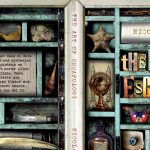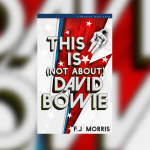The Beginning
The starting point is always the same. The page is always blank, the doubt undiminished, the question unchanged: can I fill this space with something worthwhile, something interesting?
Three hundred words or ninety thousand. You’d imagine there would be a difference— and there is— but those first moments feel the same, a familiar mix of excitement and dread.
And perhaps it was this familiarity, which tricked me.
I’m writing, I told myself. That’s all I’m doing. You start at the beginning and work towards the end. Three hundred words, ninety thousand what difference does it make? Just write.
Somehow, I convinced myself the only difference between writing a novel and writing a short story, was the wordcount. And in some ways, I was right. But in others, I was oh so wrong.
What I got right, was understanding what motivates me. The buzz of a new idea, the rush to get started and get it written down. The thrill of seeing the words on the page. I need this excitement in order to write.
Just write.
That’s what I did. No plan, no outline, just a very vague idea of a story. I wrote the way I write all my short stories. I let the words come, the ideas generate spontaneously, one sentence leading to another, propelled by that mythical image of Jack Kerouac bashing out ‘On The Road’ in one continuous stream at his typewriter. Possessed by the creative spirit and in the throes of something inexplicable and sacred. Yes, I thought. This is how it is done.
I made a complete and utter hash of it, in other words.
It’s one thing to tackle a short story in this way. To write and see where it takes you. At that wordcount (around five thousand words) it’s possible to keep the shape of the thing in your head and grapple with it on the page and off.
In my case, when it comes to writing or revising a short story, I can go for a walk and have found the solution to a seemingly intractable problem by the time I get home. But with a novel. With ninety thousand words. No. I can’t keep track of that in my head. Or on foot. I lose the thread. I forget the structure. I fail to understand my protagonists.
Of all the things I have learned in tackling a novel, the most important lesson has been this: I need some sort of a plan if I am going to complete a competent first draft.
That’s not to say that there wasn’t a germ of a story in that first, best forgotten attempt. There was. But its execution was abysmal.
I needed to learn how to plan, I realised. If I was ever going to accomplish this task, I needed to forget everything I thought I knew about writing and tackle this thing with an outline. Chapter by chapter. Beginning, middle and end. A plan I could follow and not veer from. Something rigid I could use to knock all dreams of Kerouac on the head.
Another mistake, as it turns out.
The Middle
In the end, I wouldn’t say my plan was meticulous and worked out in the finest detail. I am not a natural planner, as it turns out. Writing a synopsis for a novel may be something I can do, but expanding this into a clear, chapter by chapter outline? Impossible. I need more space, more spontaneity, the opportunity to muck around.
By the time I had conscientiously drafted notes for the first ten chapters, I was so desperate to get writing that every minute spent working on the outline felt like undergoing an hour of protracted dental work without anaesthetic.
And so, disheartened, I gave up on the step by step plan. But I had a synopsis I could use, at least, and this was to prove surprisingly more effective than I imagined.
I had always thought of synopses as something you wrote after you had completed a novel. A necessary and painful exercise you had to endure in order to submit your novel to agents and publishers. What I hadn’t understood was that, for me, a clear and concise outline is as useful as a detailed outline.
Because those two pages of rough notes would carry me through this new novel with unexpected confidence and speed. Every time I came undone (which was often) and I found my story veering off in some haphazard direction, I would refer back to my synopsis and get myself back on track.
It was a revelation.
Work towards a clearly defined end. It sounds so simple, so logical. Why had I never done this before? The more I wrote, the more I wondered how I had ever managed to complete a single writing project in the past.
But the best part was learning that working this way, not only allowed me to just write, it helped me to tune into the voice of my story and, from that, to understand my characters better.
Knowing where the story was headed, knowing what was going to happen, meant I could think more about how my protagonists would get there and why they did the things they did and said the things they said. In some ways, having the freedom to write around a loose plan meant it often felt as though my characters were telling me the story as we went along. All I had to do was keep asking the same questions: Why did you do that? Why did you say that? What is it you want out of all of this?
Dare I say, it was even fun!
And at the end, I had a working draft that was readable, structurally sound and worth editing.
Ah, yes. Editing. Now there’s another thing I’ve learned.
The End
I’ve been writing short stories for years now, and my process, such as it is, is very self-contained. I don’t have beta readers and I have only ever shared and received feedback on a couple of stories prior to publication. To the extent that I have undergone an editing process it has been to correct spelling and grammar errors prior to publication in literary magazines.
But having a publishing deal means editing. Several rounds of it. It means reading and re-reading your manuscript until you can’t stand the sight of it (my fellow Bookouture author Rona Halsall has written a very good overview of the process for anyone who wants to know more) It means exposing yourself to constructive criticism and being willing to learn from it.
I had worried about this in the beginning, because I wasn’t sure how I was going to react to such a close and critical reading. Would I be able to withstand such a rigorous process? Would my novel survive such intense scrutiny?
I needn’t have worried. My editor at Bookouture, Cara Chimirri, had such a clear understanding of what I was trying to achieve and understood my characters so well, that I found myself learning more about them as I progressed through each editing stage and being surprised at the new revelations Cara’s insights brought to light.
It also made me wonder if my reluctance to reach out to beta readers in the past was based more on the fear of criticism, and that the idea I had of a writer as someone self-contained and objectively self-critical was just a romantic notion I had allowed to flourish as a way to avoid this.
Either way, I have surprised myself by discovering that editing is actually my favourite part of the whole process. Seeing that rough draft improve with each round, polishing it to a sheen, is more deeply satisfying than I could ever have imagined, and although I am not the first person to say this, perhaps it bears repeating because it is true: writing is rewriting.
And all writing informs the process be it a short story or a novel. I think my experience writing short stories has taught me that I need to write quite freely and get a feel for a story if I am to produce anything worth reading. If I don’t get the voice right, then I don’t get the characters right, and without these two elements, I have no story. But this voice comes from gut instinct, and that naïve Kerouac inspired motivation: just write.
I can’t say I will ever write a short story the way I write a novel. Sometimes, with a story, I will have an end in mind. But often all I have is an opening line, or a small observation, or a memory to kickstart the flow. And that’s fine. Go with the flow. Just write.
And though I do need to have some structure in place to write a novel, I also come undone without the voice and the characters, and I need to feel my way towards them rather than plan my way towards them. And I have learned that all I can do, is place my characters in a situation and then let them figure it all out with me. We walk together, from the beginning, through the middle and to the end. Following points on a compass, but not necessarily with a map.
…
Biography
Jennifer Harvey is a Scottish writer now living in Amsterdam. She is the author of three novels. ‘Someone Else’s Daughter’ (Bookouture, June 2020) ‘All The Lies We Told’ (Bookouture, October 2020) and a third title, forthcoming in May 2021. Her short fiction has appeared in various publications in the US and the UK, including: Carve, Folio, Bare Fiction, The Lonely Crowd and New Writing Scotland 38, Best Short Fiction 2020. When not writing, she can be found sauntering along the Amsterdam canals, dreaming up new stories. You can find her online over at jenharvey.net and on Twitter @JenAnneHarvey1
Image: unsplash.com





